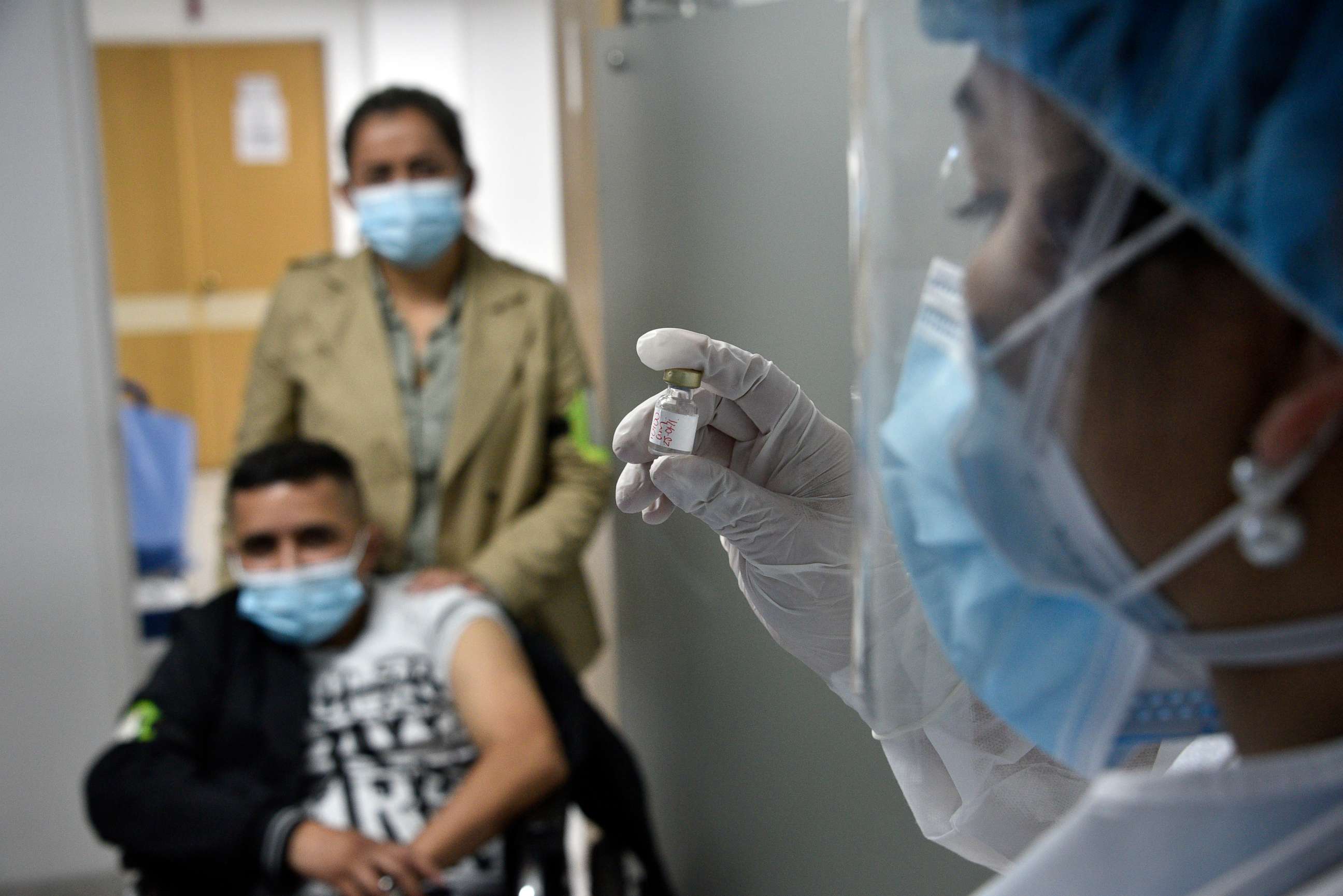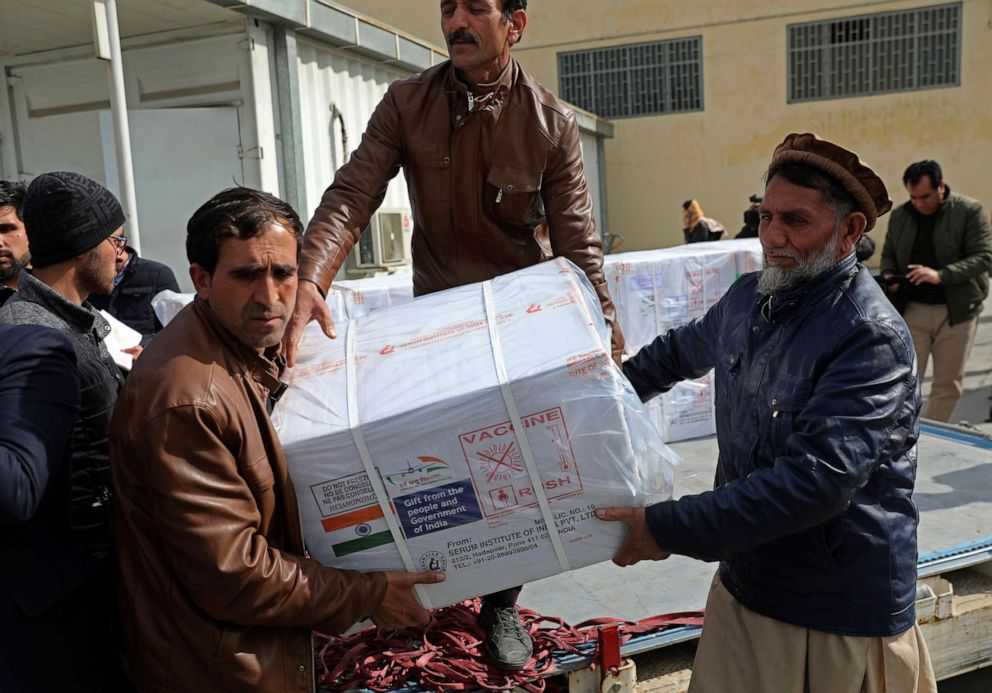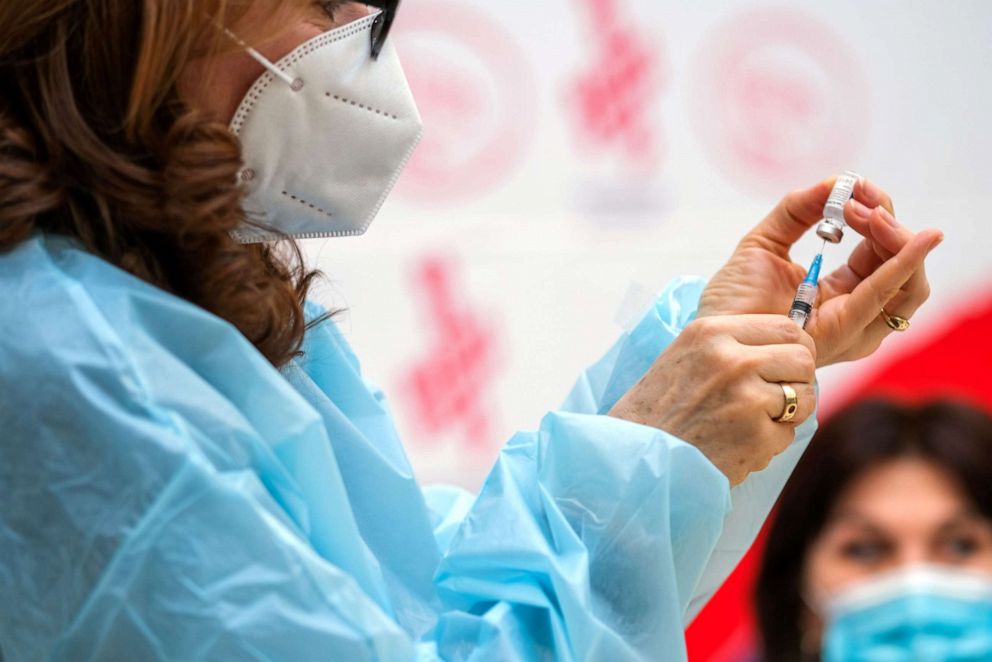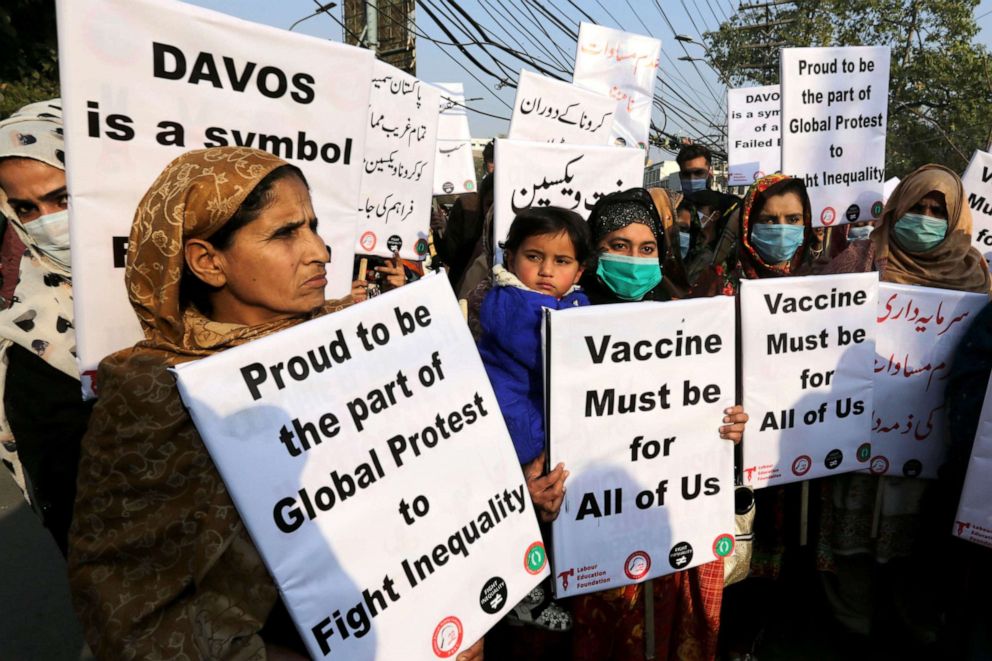Biden to announce US will donate $4 billion for COVID-19 vaccines for poor countries
The move comes as the U.S. grapples with its own shortages.
President Joe Biden plans to announce on Friday that the United States will contribute $2 billion to a U.N.-backed program seeking to distribute COVID-19 vaccine doses to people in the poorest countries in the world, according to senior Biden administration officials.
Congress had already allocated the money in December for the U.S. Agency for International Development to provide to Gavi, an international vaccine distribution alliance. Congress provided a total of $4 billion and the officials said that the U.S. would give the rest to Gavi over the course of this year and 2022.
The move, which the White House said Biden intends to announce during a virtual meeting of the Group of Seven leaders, comes as the United States grapples with not yet having enough doses to vaccinate its own population, although the situation in poorer nations is far worse.

To date, 10 countries have administered 75% of all COVID-19 vaccines, while more than 130 countries have not yet received a single dose, the United Nations said Wednesday.
Many countries are unable to compete with wealthier ones like the U.S. to purchase the limited amounts of vaccine doses available from manufacturers. In conjunction with the World Health Organization and the Coalition for Epidemic Preparedness Innovations foundation, Gavi runs a worldwide vaccination initiative called COVAX that aims to address that disparity by more equitably distributing doses.

Even though then-President Donald Trump signed into law a December bill that allocated the $4 billion to Gavi, he had previously refused to back COVAX and his administration also moved to cut ties with the World Health Organization.
Biden has dramatically reversed that approach, keeping the U.S. in the WHO and making battling the COVID-19 pandemic worldwide a national security priority.
But bringing the global outbreak to an end has proved complicated with limited availability of vaccine doses.
The United States has so far purchased 600 million vaccine doses, but it does not intend to give any of them to other countries until -- as Biden directed in a Jan. 21 memorandum -- "there is sufficient supply in the United States."

A senior administration official said Thursday that "this pledge to COVAX does not impact the vaccination program in the United States at all."
"While we're not able to share vaccine doses at this time while we're focused on American vaccinations and getting shots into arms," the official said, "we're working hard to support COVAX, strengthen global vaccination around the world and determining the timeline for when we will have a sufficient supply in the United States and be able to donate surplus vaccines."
China and Russia, meanwhile, have donated doses of their homegrown COVID-19 vaccines to partners and developing countries as a form of "vaccine diplomacy." The United States has not yet followed suit.
The administration officials argued that vaccinating people abroad protected the health of Americans domestically.

"Decreasing the burden of disease decreases the risk to everyone in the world, including Americans," the official said. "It also decreases the risk of variants occurring, like those that we're seeing now. So it's critically important to surge vaccination globally, while we're, of course, prioritizing vaccinations here at home."
The official said the first $2 billion tranche would be donated "within days to weeks" and "ideally by the end of this month." Of the additional $2 billion, the U.S. plans to contribute the first $500 million of it "rather quickly" to "spur some of those initial doses to be out there," but it intends to at least initially hold back the rest to encourage other countries to make pledges of their own, the official said.
"This pandemic is not going to end unless we end it globally," the official added.
ABC News' Conor Finnegan contributed reporting.




